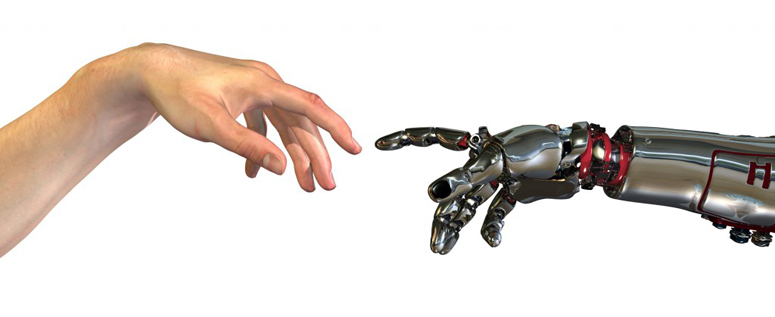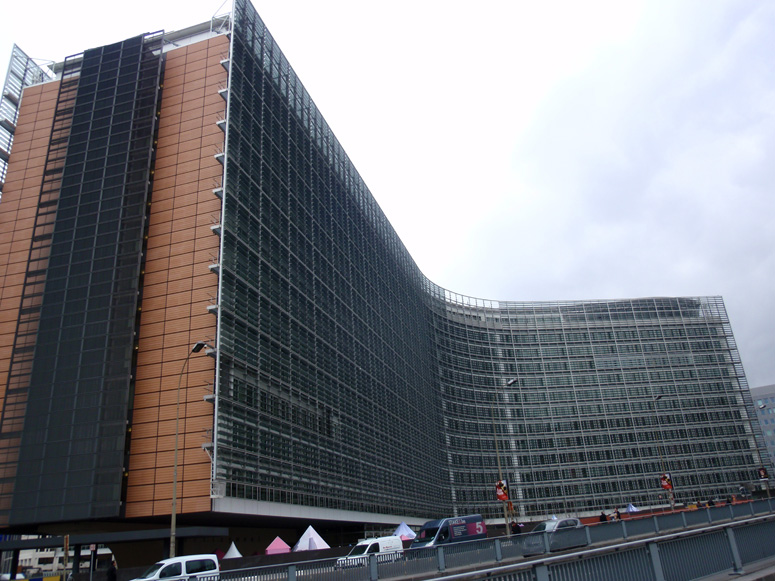How SPARC is used
Horizon2020 with new instruments to spur innovation

SPARC is the agent for implementing robotics strategy within Europe. Its purpose is to connect the science base to the marketplace, a connection that ultimately benefits society. Its vision is to attain a world-wide leading position in the robotics market across all domains.
Horizon 2020 is the eighth European Framework Programme. It places emphasis on innovation and the transfer of technology to the marketplace.
Monitoring the progress:
From this year on, the Periodic Monitoring report of SPARC is published.
Please find the report for 2017 here.
The following projects were funded under SPARC:
Call 2014: https://ec.europa.eu/digital-single-market/en/news/first-robotics-projects-h2020-starting
Call 2015: https://ec.europa.eu/digital-single-market/en/news/new-robotics-projects-2015-announced
Call 2016: 10-success-stories/new-horizon-2020-robotics-projects-2016.html?changelang=2, https://ec.europa.eu/programmes/horizon2020/en/news/new-horizon-2020-robotics-projects-2016
Call 2018: under evaluation, public information expected end of 2018
An overview which includes also other funding schemes can be found at https://ec.europa.eu/digital-single-market/en/programme-and-projects/project-factsheets-robotics
Horizon 2020 builds on the success of the seventh Framework Program (FP7) while attaching greater importance to innovation and wealth creation resulting from research. Robotics will continue to provide a strategic focus within Horizon 2020.
Horizon 2020 has a number of strategic objectives. For the robotics community these can be distilled into the following:
- Strengthen the EU’s technical and scientific position.
- Strengthen industrial leadership in innovation. This includes major investment in key technologies, greater access to capital and support for SMEs
- Address major concerns shared by all Europeans such as; climate change, sustainable transport, affordable renewable energy, food safety and security, or coping with an ageing population.
At completion Framework 7 directly funded some 130 robotics based R&D&I projects involving around 500 organisations with total grants of some €536 million. Other funding with elements related to robotics amounts to some €170 million.
This unique level of investment has yielded a vibrant and active research community within Europe both in academia and industry. Europe therefore has a strong basis on which to innovate and create. The focus of Horizon 2020, biased closer to the market and encompassing innovation, will help to leverage this advantage for the Robotics community as new markets and service opportunities are created.
In particular the mechanisms for pre-competitive procurement of systems and services provide an exciting opportunity to showcase the potential of robotics technology to improve service delivery and provide a real advantage. The Horizon 2020 programme will introduce a number of specialised instruments to push innovation closer to market while at the same time stimulate dialogue between academics, producers and users of robotics technology.
Most notable of these will be Pre-Commercial Procurement (PcP), and the Public Procurement of Innovation (PPI) instruments. In addition a specialised Pilot Installations instrument will be created to enable longer term deployment of robotics systems into real environments to be tested. In order to aid the involvement of SMEs in Horizon 2020 a dedicated SME instrument will be implemented that focuses on the strengths of SMEs in the Research Development and Innovation process. This is particularly critical for the Robotics community given the high density of SMEs working at the lead edge of robotics technology. The success and growth of these companies will be critical for Europe to meet its key targets.

The European Commission (here: Berlaymont Building which serves as the Commission’s seat) is often claimed as too large and bureaucratic. The truth is that with 33,000 officers, the EC has less staff than many large cities in Europe. The officers responsible for robotics are dedicated to making SPARC a European success.
The Role of the European Commission (EC)
SPARC is the teaming up of the robotics industry, research, academia and the European Commission to launch a joint research, development and innovation programme in order to strengthen the competitive position of European robotics.
The basic aim of the PPP in robotics is to boost robotics research, development and innovation in Europe, by better connecting academia and industry. To do this, the EC will translate the research requirements of industry and academia into concrete work programmes and calls for proposals and organise a strategic dialogue with them on these matters. Doing so will mean that the research results of calls for proposals will be more relevant for these stakeholders.
SPARC is not a “Closed Shop”
SPARC is jointly run by the European Commission (representing the public side) and euRobotics AISBL, the association of the European robotics community which includes robotics manufacturers, component manufacturers, systems integrators, end users, trade fair organisers, venture capitalists, research institutes, universities. The public and private side meet regularly in a so-called Partnership Board where the joint strategy is discussed and decided. For reasons that funding from the Commission is generated as part of the legal framework of the European Union, the European Commission will remain responsible within European laws for issuing funding and will be the legal partner responsible for calls, evaluations, and the contractual agreements. SPARC is dedicated to ensure openness, transparency and fair representation of all stakeholders. It is important to note that SPARC is not laid out for a “closed shop”, but on the contrary will be open to new stakeholders having access to the activities organised and funded under this programme.
Information from the European Commission on Calls.
- Horizon 2020 – How to participate
- Horizon 2020 Online Manual
- Horizon 2020 programme sections
- Work Programme 2014 – 2015 (ICT-23/ICT24)
- More information on ICT23 and ICT24 Calls
- More information on ICT-25 “Advanced robot capabilities research and take-up”
- More information on ICT-26 “System abilities, development and pilot installations”